Replacing gas with renewable energy sources can positively affect the security and affordability of energy supply, create new jobs and help energy-poor households.
- Organisation
- Activities
- Knowledge
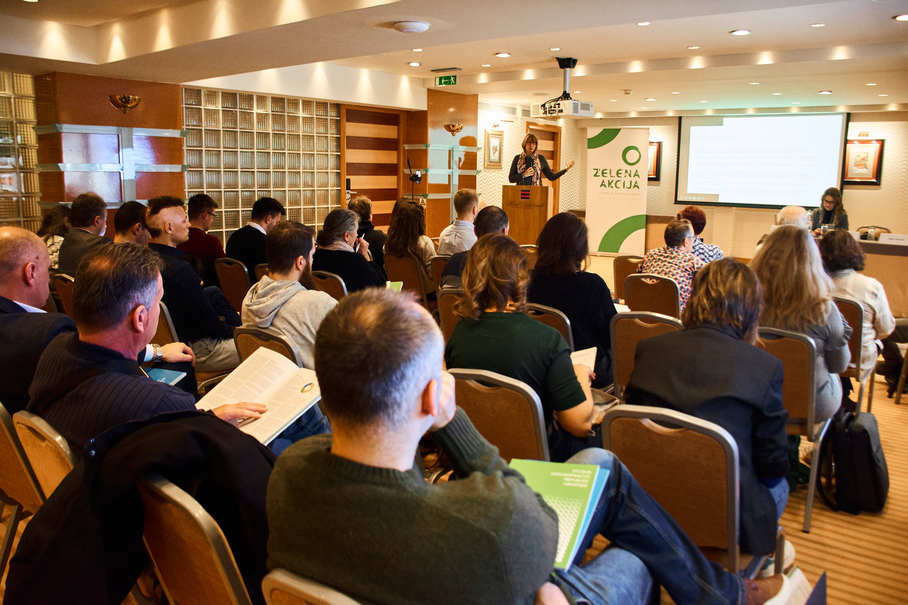
Replacing gas with renewable energy sources can positively affect the security and affordability of energy supply, create new jobs and help energy-poor households.
This was shown by the Social Analysis of the Study of Degasification of Croatia until 2035, i.e. the process of gas phase-out, which was presented by Zelena akcija/FoE Croatia today at Hotel Dubrovnik (Zagreb).
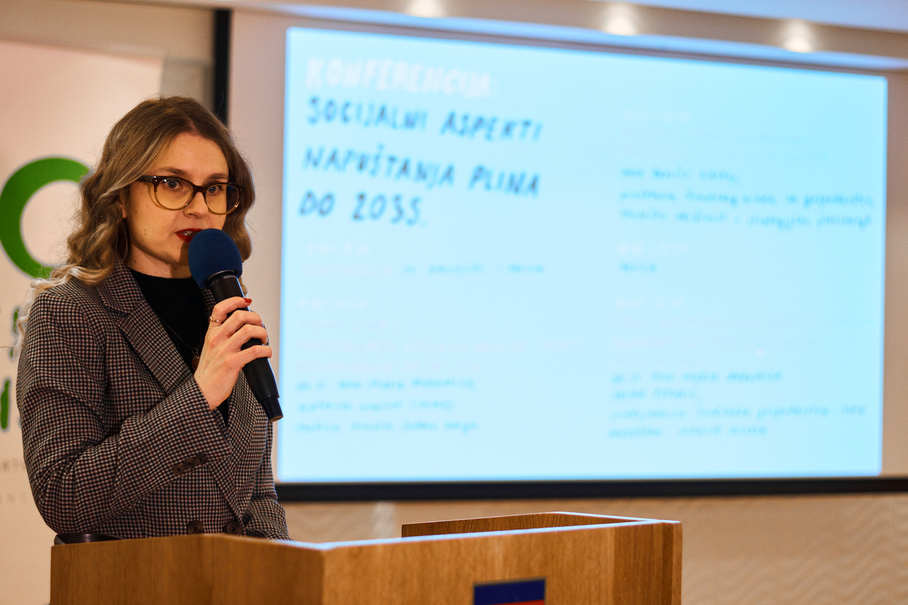
The conference, called "Social aspects of gas phase-out by 2035", was opened by Marija Mileta from FoE Croatia who pointed out that the goal of the analysis was to realistically assess what the possible consequences for citizens are if the transition is not implemented fairly. "What we, as FoE Croatia, do not advocate and do not want is to replace technology - fossil fuels with renewable sources (RES) - and to continue the extractivist and exploitative model of the same corporations, that is, to just switch to green capitalism."
She added that the transition from gas to RES by 2035 is both technologically and financially possible, as shown by the Degasification Study, but what is missing is political will. “Unfortunately, this was confirmed again by the non-attendance of the Ministry of Economy.”
Dr. Ana-Maria Boromisa from the Institute for Development and International Relations, author of the analysis, emphasised that targeted financial assistance is necessary for the transition to renewable energy sources and increasing energy efficiency, which takes into account regional and rural-urban differences and the financial capacity of households. Such targeted support ensures access to basic energy services, and the amount needed in the period up to 2035 is estimated at 3.2-3.4 billion euros. “The transition to RES can bring economic benefits, such as new quality jobs, security of energy supply, lower prices, increased competitiveness and social benefits such as community engagement and reduced risk of poverty. "To achieve such benefits, change management and strong cross-sectoral cooperation are needed to implement theese reforms", Boromisa pointed out.
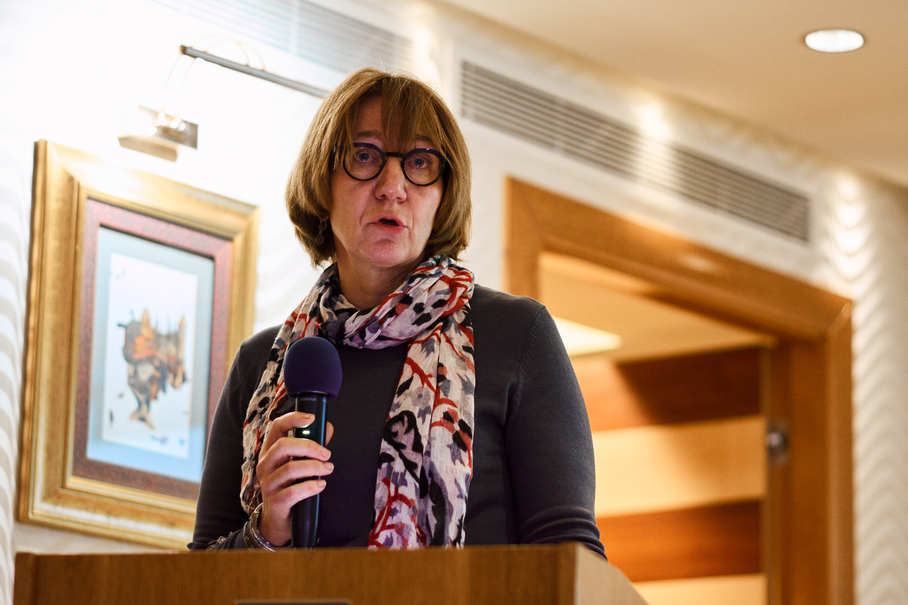
Ana Pavičić-Kaselj, head of the Zagreb City Office for Economy, Environmental Sustainability and Strategic Planning, said that decarbonisation and adaptation to climate change should happen to a large extent by 2030, and 2035 is a realistic year. “We can’t completely move away from gas, but we can develop in different directions - solar panels, heat pumps, etc. Zagreb lies on geothermal sources, some of which have been given to the state concession, but we also want to do our own geothermal research and that will be our priority in the coming period.” On the other hand, she commented that it is difficult to have a constructive conversation about these topics with the state. “As long as there is no real cooperation with the national energy company HEP for the possibility of developing a central heating system, that we work on it together or even take it over as a city, we cannot talk about decarbonisation. But we have to go in that direction, there is no alternative, Zagreb must be able to manage the development of the heating system and modernise it”, said Pavičić-Kaselj.
She also said that the City has secure finances and resources for the energy renovation programme for buildings and that it will provide subsidies for the transition to target groups. “This year, we are focused on city buildings, a cycle has begun and that is 3-4 years of renovation of public buildings. We have over 200 construction sites open in the city, but completing infrastructure projects will be a challenge because there is a shortage of workers. We have also adopted programmes to reduce energy poverty and we intend to work with other stakeholders on this issue.” She hopes for a programme that will specifically encourage renewable energy sources and efficiency measures next year. “There is already a working group working on this, but they should be faster”, she emphasised.
Jasna Pipunić, president of the Trade Union - SING within the INA Group (state oil and gas company), was also a speaker at the conference. She said that in their programme they have an item related to retraining and further education and that the union is ready to help the workers in this. "It is not easy. Our members should retrain, and that is not easy for people who have been doing a job for 20 to 25 years. The transition should be inclusive."
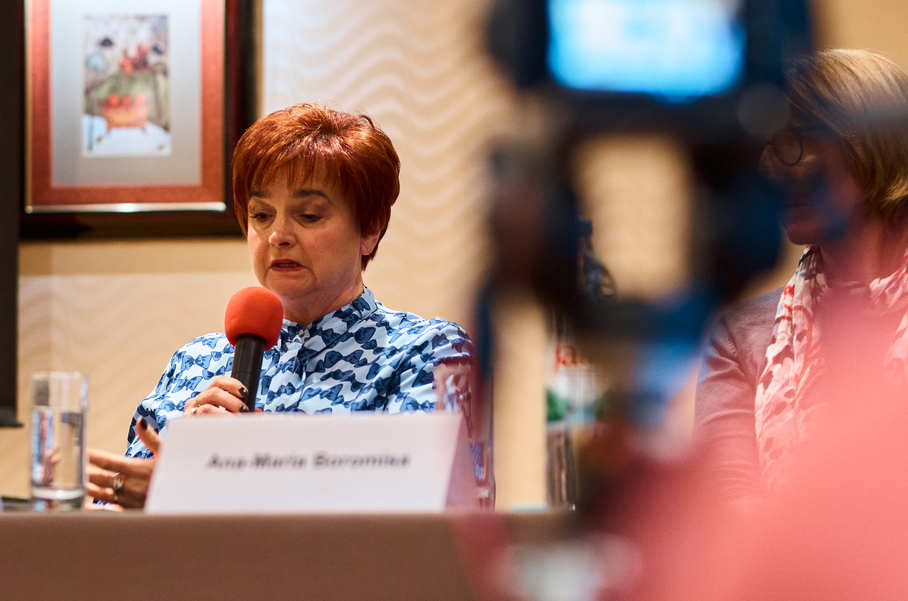
One of the conclusions of the Social Analysis, said Boromisa, is that the measures should cover persons and households that are not currently at risk of poverty, but could become endangered due to job loss and old age. It has been estimated that up to 15.000 workers in the gas sector could be faced with the loss of their jobs due to degasification. The necessary funds for the implementation of the just transition plan for employees in the gas sector, which includes compensation and vouchers for education, are estimated at 61.5 million euros. “On the other hand, full degasification could, in a conservative estimate, lead to the creation of 10.000 jobs per year. The potential for creating local jobs and reducing poverty in Pannonian Croatia, which is the most vulnerable, is particularly significant”, Boromisa emphasised.
Pipunić pointed out that INA is accountable to its owners and that it is expected to invest. “We can’t rush into this. It’s up to us to make the workers aware that change is needed.” When asked about cooperation, she said that she sees that civil society can provide a perspective from outside. “That perspective will not be primary for us in the unions, but from the aspect of climate change it is extremely important.” Pavičić Kaselj also said that they cannot function without cooperation with all stakeholders in the energy sector and civil society. “However, only when the local electionspass can we talk about serious activities for the future."
Boromisa concluded that there is a lack of systematic coordination between different bodies at the national level, especially the energy and social policy sectors. “The process is flawed, institutions lack capacity, and they are probably also susceptible to lobby influence.” She also said that the City of Zagreb has limited tools to achieve change. Namely, it started an initiative for citizens’ energy communities, but it stalled because national regulations do not allow for the adequate functioning of such communities. On the other hand, she said that local communities can do a lot. “We have examples of positive steps forward, such as Krk Island. But, of course, a legal framework is needed that enables this. It is extremely important not only to build the capacities and skills of workers, but also to be able to empower communities to, for example, jointly invest in their building, in improving their neighborhood”, Boromisa stated.
Mileta emphasised that FoE Croatia wants to enter into a dialogue with workers, unions, those on the margins and those outside the Zagreb power center, rural areas that are often neglected, and this conference is the right opportunity for that. "We want to clearly communicate that the intention of the so-called green transition, and thus ours, is not to take anything away from anyone; on the contrary, we want to enable a better life for people. We want the system to be transformed in a way that is better for everyone, that wealth is redistributed, and that in the coming decades we have a habitable planet. The threat of climate change will not disappear, and with inaction it will only get worse. We can and must do better."
The Social Analysis in available only in Croatian language.
The entire photo gallery can be viewed here.
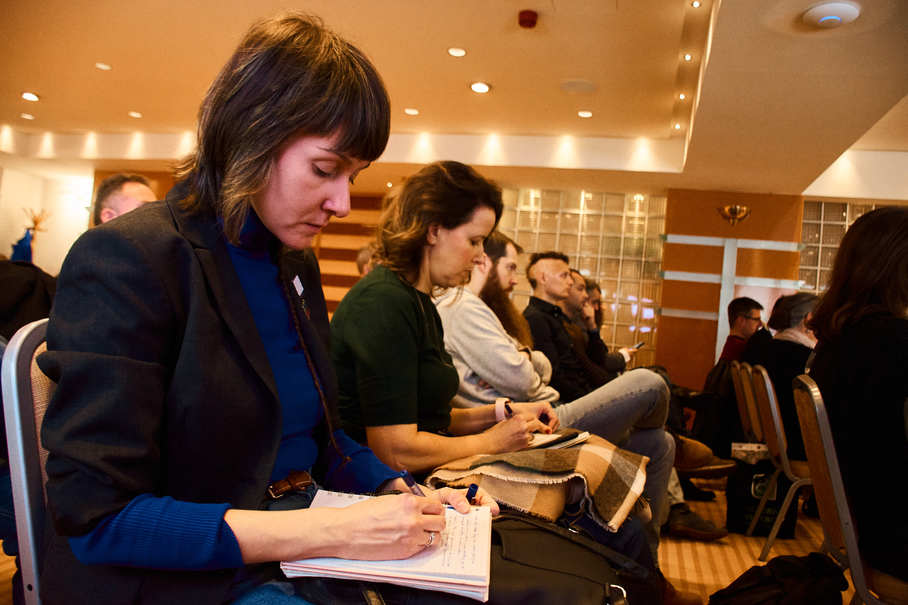
You may upload our content in an integral or revised version with the indication of the organisation Zelena akcija/FoE Croatia - under the terms of the Creative Commons Attribution 4.0 International License.
This permission does not apply to stock photos and embedded content of other creators.
Design & development: Slobodna domena Zadruga za otvoreni kod i dizajn